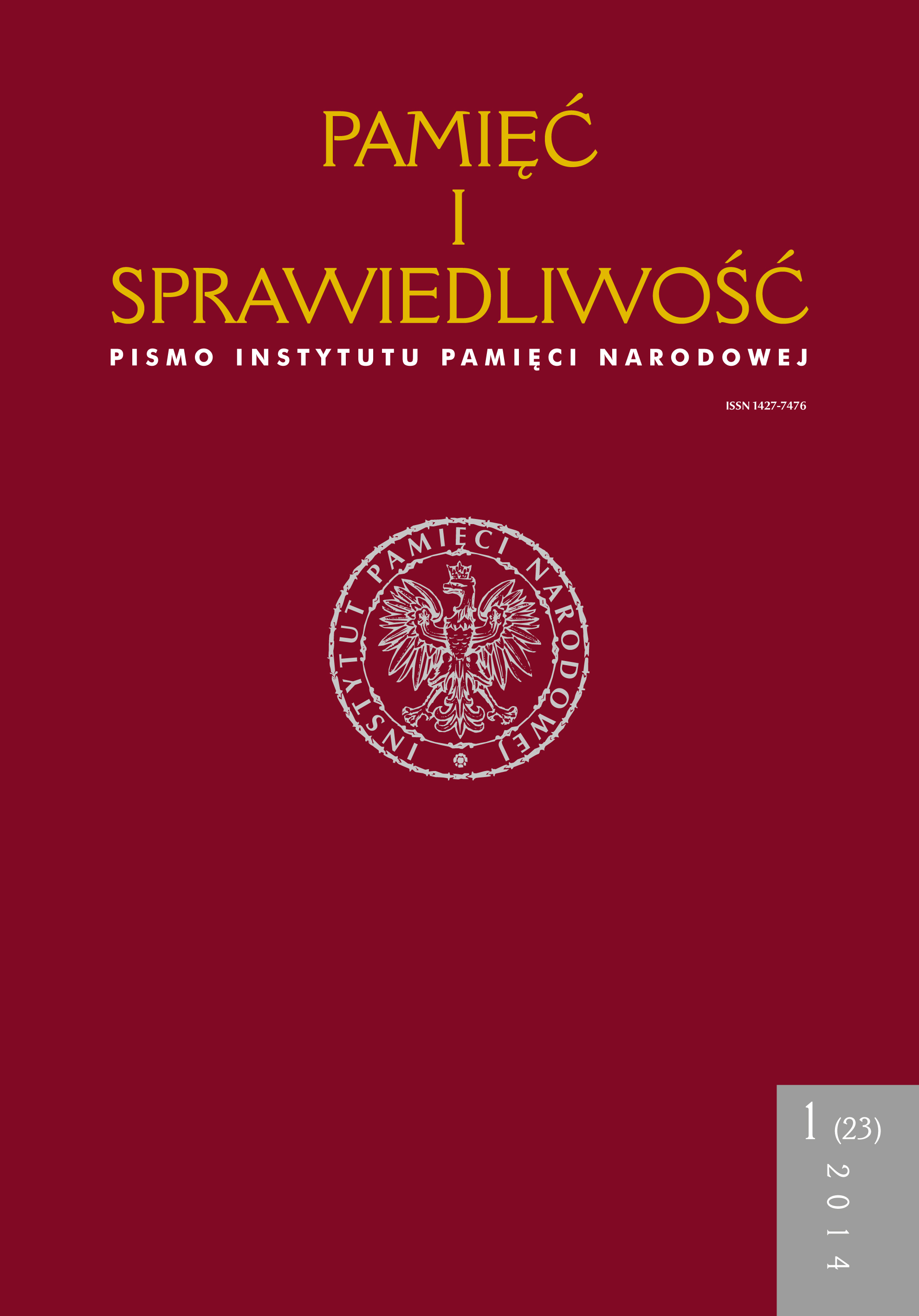Związek Patriotów Polskich jako organizator repatriacji obywateli polskich z ZSRR w latach 1945–1946
Pamięć i Sprawiedliwość, Vol. 23 No 1 (2014), pages: 339-367
Publication date: 2014-06-30
Résumé
The Polish-Soviet agreement on option and repatriation concluded in
Mos-
cow on 6 July 1945 allowed Polish citizens in exile in the Soviet Union to return
to their homeland. However, shortly after the signing of the agreement, it turned
out that most of those concerned did not meet the conditions imposed by the
Soviet authorities and could not exercise their right to repatriation. The
unfavourable interpretation of the agreement provisions by the Soviets meant that it was
essentially an invalid document. Only the diplomatic intervention of Professor
Henryk Raabe, Polish Ambassador in the Soviet Union, made the prospect of
repatriation became real again. The repatriation operation was overseen by the
Union of Polish Patriots (ZPP). Field units of the organisation were involved in the
procedure of changing the nationality of the exiles, carried out an informational
campaign, gathered stocks of clothing, food and medicine for the journey,
cooperated with railway authorities in clearing transports, etc. The resettlement of over
a quarter of a million people from vast areas of Russia, Siberia and Central Asia
was an extremely difficult and demanding operation which required proceeding
in accordance with a specific plan. The responsible units of ZPP began
preparations for the repatriation already in September 1945. The first transports of our
compatriots to Poland departed as late as in February next year. The operation
ended in June 1946. For the employees and activists of ZPP, as well as the exiles,
these ten months meant increased organisational effort. Owing to the efforts of
the Union of Polish Patriots, approximately 250,000 Polish citizens – exiles of the
years of war and Soviet occupation – safely returned to their homeland in a
well-organised operation.
 Język Polski
Język Polski
 English
English
 Deutsch
Deutsch
 Français (France)
Français (France)
 Italiano
Italiano
 Русский
Русский


 PDF (Język Polski)
PDF (Język Polski)
